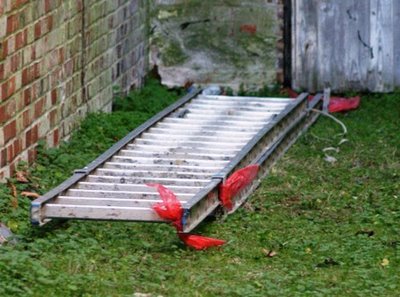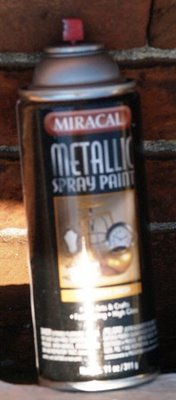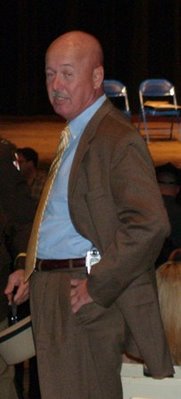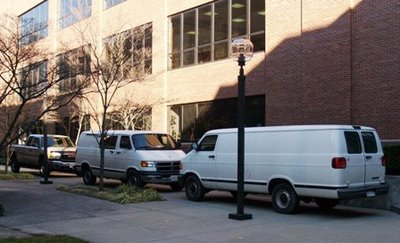The impact of electrical grid complexity and the intermittence of wind is a concept that is perhaps the single most important issue if you wipe away the sum total of all the comments brought to light so far. The wind is intermittent and it isn’t available when needed the most. Back up generation is needed and must be available at a moments notice.
Some grid basics are important to understand this.
For comparison think of the water supply for many cities. There are usually one or more large storage facilities to store water for usage. These can build up a store during times of excess rain and then absorb to a great extent periods of drought so long as they're not excessive or sustained for lengthy periods.
The electrical grid, unlike a public water works cannot store electricity. The supply must neatly match the demand put upon it at any given time of day or season. If the grid fails, serious problems arise. Blackouts and brownouts occur. It doesn't matter if there is excess or deficiency, a problem will result if supply doesn't neatly match demand.
Most electricity is generated by heating water or a gas to drive a turbine which in turn drives a generator. Plant sizes and capabilities to ramp up or down vary depending upon the type of plant as directed by its function in the grid. Some supply base load, some supply demand loads, some supply peak loads. This involves super heating water to drive the turbines. This is a process that cannot be turned on at the flick of a switch. Depending upon plant size the starting up phase can be very inefficient and once everything is running as it is supposed to the efficiency goes up remarkably. These include nuclear, coal fired, and gas fired plants. The nuclear plants generate little greenhouse gas if any, coal the most, and gas fired ones are considerably cleaner than coal. Thermal plants lose efficiency when ramped up and down.
These can be kept up and running in spinning reserve to meet demand rapidly, but that involves burning fuel while generating little or no electricity. Very inefficient. There is no option to just turn them off when the wind is blowing. Furnaces have to be brought up to operating temperatures and the water or gas has to be brought up to operating temperatures. These take a bit of time to occur. Wind falls out at a moments notice and the gap has to be filled abruptly.
Hydroelectric plants run either off a dam that lets water build up in a reservoir and used to spin turbines or they're placed directly in running water. These can be ramped up and down fairly promptly.
Hydro is easiest to flick off and on. If one is going to use hydro to back up turbines one must have hydro available as back up. No new hydro is going on line, so no coal is going off line. If on the other hand one is going to attempt to replace coal fired electricity with wind generated electricity then a coal plant will only be removed from electricity generation temporarily, unless its required capability to back up a wind plant is met by some other source of backup. The coal fired plant is burning coal, it just isn’t producing electricity. This means that off isn't really off, it is just a bit less than on and requires going beyond on to get back to on. I know that sounds confusing, but any truck driver that has had to depend upon obtaining the best mileage to get somewhere will understand the meaning. Slowing down means speeding up is needed to go back on line and that is inefficient. Get in the way of a truck on the interstate and note the black smoke coming from the stack as it passes you. That is inefficiency in play.
Reading the above one can also wonder what is sensible about finding an alternative to coal to use as a back up to wind. If it is an alternative to coal why bother with complicating things by using something so acreage demanding as wind? If it is to be used as a coal substitute it must be as reliable as coal is in order to backup wind and it must be cleaner than coal to warrant use. This would appear to render wind energy moot.The second half of this equation is the wind plant's time for peak output and its mismatch to peak demand on the grid. Peak demand occurs in the hot summer months during the day. Peak production occurs during fall nights. Thus power is produced when needed the least.
The electricity demand during the summer days has to come from somewhere, and it won't be wind. When the wind is blowing something has to be turned off to compensate on the grid. The easiest ones to do this are the hydro generators. Where is the CO2 savings? This isn't always the case though, some coal plants get ramped up and down thus decreasing their efficiency and perhaps causing a CO2 savings deficit, if that makes sense.
Industry proponents will be quick to point out success stories here and there. If you look closely you'll find that these tend to be either half truths with another aspect they're omitting or they'll involve power grids with relatively low wind saturation. Meaning there aren't very many wind plants in existence for these grids.
In systems that have higher saturations of available wind power the actual contribution that the wind plants make to the grid fall off and even require the addition of new back up generation facilities. There is a fairly new study that points this out. This study isn't the work of some crazed wind opponent. The "report was compiled through a comprehensive literature search, the help of the regulators and assistance from governments, energy organizations and meteorological bureau." "Nearly every one of the points described in the study has been labeled a "myth" by a lobby group."
Denmark and Germany have fairly high wind power saturation and what they're learning is that this destabilizes their grids. Power has to be dumped off, often in neighboring countries. This involves the wind power getting sold at a loss to Norway, which then shuts down its own hydro plants to take advantage of the now cheap electricity. No CO2 savings. Conversely Denmark and Germany boast some of the highest rates for electricity among developed nations.
Denmark has shown a downward trend in CO2 emissions in the last decade. This is due to the use of combined heat and power plants, increased efficiency and increased use of natural gas and biomass in the electricity sector. No reduction is attributed to wind power.
Clearly, in spite of what industry proponents would have the public believe it isn't a matter of throw up a wind plant and shut down a coal fired plant. Indeed the above study suggests "that while wind power capacity will reach 48 GW by 2020 in Germany, the source is so intermittent and unreliable that it is equivalent to only 2 GW of stable fossil fuel capacity. " So it takes 48 GW of wind to equate to just 2 GW of fossil fuel. To put this into perspective the Jack Mountain site consisting of 44 turbines at 1.5 MW nameplate gives a facility total = 66 MW installed capacity. This will sit atop a 6.4 mile stretch of ridge that to date is pristine and unaltered by any industrial installations. 6400 miles of ridge line with 44,000 turbines would equate to 66 GW or about the equivalent to about 2.75 GW in coal. That is somewhere around 0.3% of US total installed capacity in 2002 (885 GW). How that can contribute to a decrease in CO2 emissions escapes me. Especially when you consider the other environmental costs for that many turbines. Not to mention the financial cost for installation.
Another fundamental error in thinking is that our electricity consumption has been on the rise by 2% per year. Wind energy can not begin to hope to keep up with that pace. We're on an unstoppable CO2 emissions increase no matter what carbon free power we use unless we reverse that trend. Provided no one wants nuclear.
























